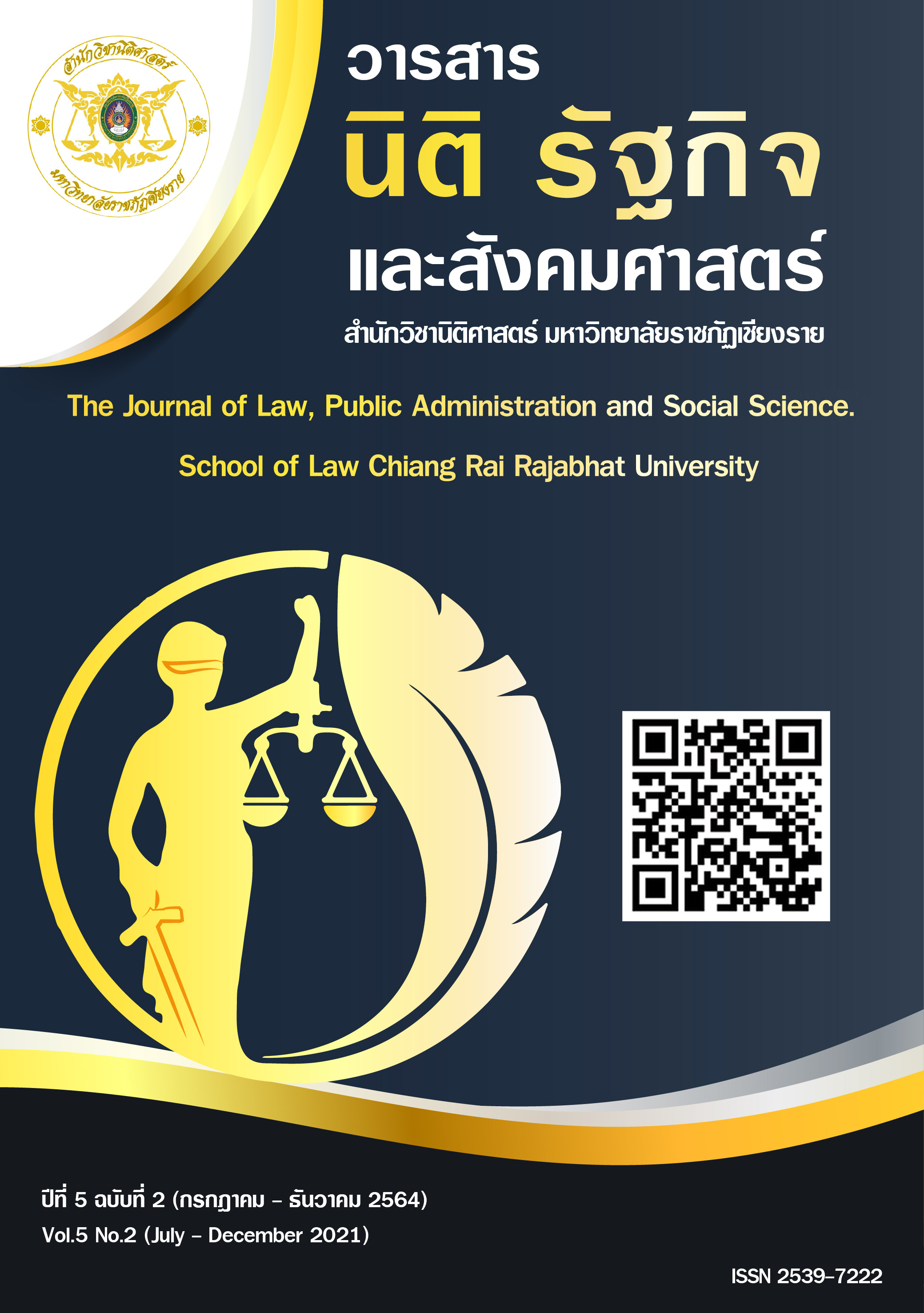Economic and Legal on The Deploying of Medical and Healthcare Robotics: Case Study on a Comparison of the European Union (EU), South Africa, and Thailand
Main Article Content
Abstract
Europe is well placed to benefit from the potential of Artificial Intelligence (AI). It produces industrial and professional service robots for healthcare and plays an important role in developing and using software applications for companies. Surprisingly, the African Region and Thailand, neither of which is traditionally associated with robotics technology, are making good progress in the use and development of robots in the field of medical service and healthcare by promoting investment in robotics innovation. However, there are still several unclear aspects to be addressed by policymakers in these two regions. Although medical robots have shown great potential in these two areas by contributing to various healing processes, many limitations to the application of the technology as such have emerged in terms of economic policy, legal frameworks, the risk to privacy, and moral responsibility. Apparently, the main barrier holding back these two communities from being the next generation of automotive developers in medical robots is that legislative and investment policies governing robot activities are produced and enforced by different organizations separately. This effectively discourages not only management policy but also related action to support robotics innovation. Even though experts are creating increasingly advanced robot technology, regulation of its development is still lagging behind. This article will inform the social sciences, ethics, law, and market policy to find a solution where robots and humans can work side by side, with an emphasize on the application of legal and economic regulations relating to this growth in automation to encourage the status of the robots, bringing them to the forefront of the socio-scientific platform by applying documentary and action research methodology. In order to achieve this goal, economic policymakers and legal regulators have to engage in these agendas together with producers to establish how law and market policy should react to medical robots appropriately.
Article Details
References
Brynjolfsson, Erik, and Andrew McAfee. Race Against the Machine. Lexington: Digital Frontier Press, 2011.
Chulalongkorn University Intellectual Property Institute. Intellectual Property Innovation Driven Enterprise. Bangkok: Chulalongkorn University Intellectual Property Institute, 2017.
Congressional Research Service. “Defense Primer: U.S. Policy on Lethal Autonomous Weapon Systems.” https://fas.org/sgp/crs/natsec/IF11150.pdf accessed January 13, 2020.
International Telecommunication Union. United Nations Activities on Artificial Intelligence (AI) 2019. Geneva: International Telecommunication Union, 2019.
Jerome A. Singh, Michelle Govender, and Edward Mills, “Do human rights matter to health?” Lancet, 307, 9586 (2007), 521-527.
Organisation for Economic Co-operation and Development. OECD Science, Technology and Innovation Outlook 2016. Paris: OECD Publishing, 2016.
Pedro T. Ramirez et al. “Minimally Invasive versus Abdominal Radical Hysterectomy for Cervical Cancer.” The New England journal of Medicine, 20, 380 (2019), 793-795.
The European Commission for the Efficiency of Justice. European Ethical Charter on the Use of Artificial Intelligence in Judicial Systems and Their Environment. Strasbourg: Council of Europe, 2019.
The Thailand Board of Investment. “Thailand’s automation and robotics.” https://www.boi.go.th/ upload/content/automation_5a4fa9cec04d6.pdf. accessed January 13, 2020.
United Nations Conference on Trade And Development. Information Economy Report 2017: Digitalization, Trade and Development. Geneva: United Nation Publication, 2017.


